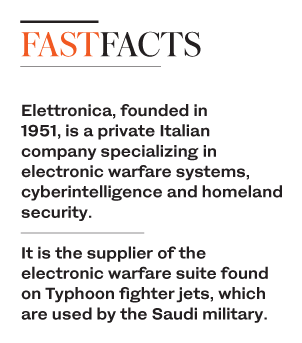RIYADH: Former Italian Minister of Justice Prof. Paola Severino highlighted the similarities between her country and Saudi Arabia while visiting the Kingdom as part of a technology delegation seeking ways to contribute to the realization of Vision 2030. Now the vice president of Luiss University, she was also exploring opportunities to develop joint academic programs.
“There were a lot of important points in the 2030 Vision,” said Severino. “It starts with the idea that culture is a very important bridge between countries. I have the same idea. We (Saudi Arabia and Italy) have a similar history, the historical framework, and the link between Arab culture and Roman culture and Italy is very strong.
 “When I looked more deeply into Vision 2030, I found more common ideas. In the vision there were goals such as to foster academic and professional skills to create a network between academies and also to foster information-technology programs, not only for anti-corruption but also the idea of constructing new professional skills, starting from legality and jurisdiction — a good justice system that could help the development of a country as well as the economic development.
“When I looked more deeply into Vision 2030, I found more common ideas. In the vision there were goals such as to foster academic and professional skills to create a network between academies and also to foster information-technology programs, not only for anti-corruption but also the idea of constructing new professional skills, starting from legality and jurisdiction — a good justice system that could help the development of a country as well as the economic development.
“IT and digital could be a very important development of culture, but we have to be able to govern digital development. There are a lot of problems with piracy and the possibility of someone using data and hacking, which is dangerous.”
Severino is heading an Italian delegation exploring opportunities for collaboration and the development of a joint master’s degree program with Luiss University.
“Discussions have been very positive so far,” she said. “We have some concrete proposals on the table which will be developed further in the coming weeks.”
In the ever-evolving digital era, she said, technology must be governed by rules, laws and a new economic system that must be developed in a way that “respects rules and traditions.”
“The idea was to start with a joint program, with a lot of cultural and academic exchange,” she added.
To this end, the Italian delegation met representatives of Prince Sultan University, Alfaisal University and Princess Nourah bint Abdulrahman University, along with other education groups and officials.
Enzo Benigni, the president and CEO of technology business Elettronica, is also part of the Italian delegation.
“Sometimes it’s difficult to explain how cooperation between a university a company can be, but the digital world is starting to become generic, and we live in a world that is digitalized. There is a gap in universities between reality and university modules. What we want to do is fill this gap and to be a modern university with modern students because it’s a modern world. Young people are very open and are connected to that.
“Our aim is to prevent today’s universities becoming disconnected from today’s technology. This is the concept and our contribution. The best example is if we have a cyberattack then it is important that we have an exchange of ideas,” Benigni said.
In addition to her meetings with educational institutions, Severino met Saudi Minister of Education Dr. Ahmed Al-Issa. They discussed the importance of education and cultural and academic exchanges in developing a healthy, vibrant society. Severino in particular praised a scholarship program for study abroad sponsored by the Saudi government.
She also visited the Misk Foundation and Prince Sultan University, where she delivered a keynote speech on the importance of the law and the fight against corruption to sustain businesses and economic growth.



























